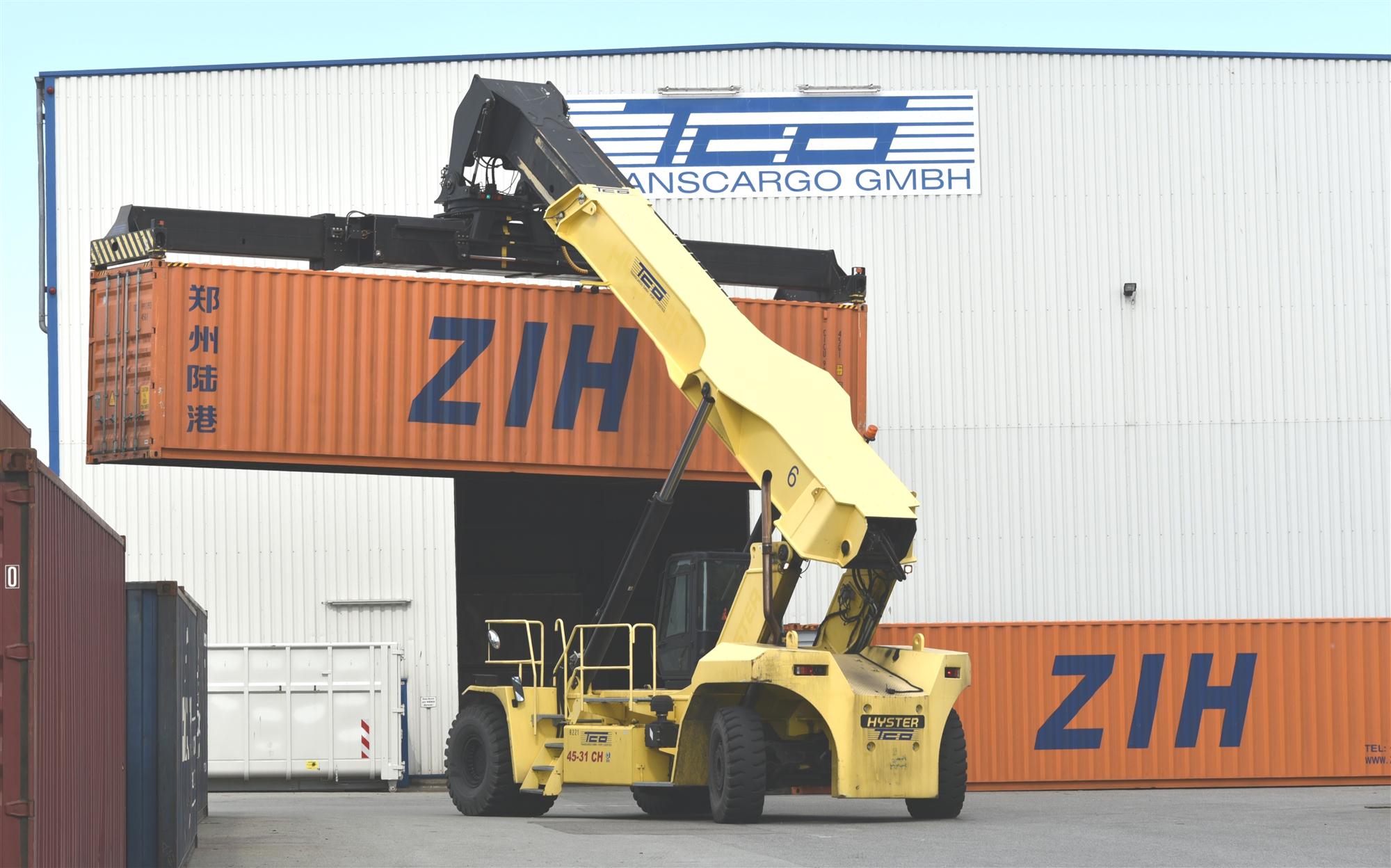Hamburg-based service provider TCO Transcargo is taking advantage of the growth in rail freight to and from China and sees further potential opportunities.

TCO began handling rail containers from the Port of Hamburg to China approximately 12 months ago and now handles containers at Eurokombi’s multimodal terminals in Hamburg-Waltershof and DUSS in Hamburg-Billwerder.
“We primarily handle containers for export to China,” said Thomas Wolnewitsch, managing director of TCO. “That started with three or four 40-ft containers per week. “Meanwhile, the firm is handling 25 containers per week, and these rail containers to China constitute between 10 and 15% of TCO’s business.”
There are now 177 weekly container block train connections between Hamburg and China. From Hamburg, these trains head to Malaszewicze on the Poland-Belarus border, where they are transferred from standard to broad-gauge track. They continue via Belarus, Russia and Kazakhstan to destinations such as Zhengzhou in Henan province. One of TCO’s major partners and customers is the Chinese rail operator Zhengzhou International Hub Development.
“With containers going by rail, sudden acceleration can occur, and forces work horizontally,” said Wolnewitsch. “Freight is also exposed to constant shaking and vibration. This all calls for special cargo lashing. At destination, the Zhengzhou rail terminal, stringent regulations apply on how containers are loaded. We receive clear instructions on how containers must be balanced in terms of weight so that they can be transhipped in China.”
At least 70% of the rail containers TCO handles for China contain cars, while the other 30% contain machinery, steel coils and boxed or crated export cargo. ZIH trains depart Hamburg for China almost daily and the operator plans to further boost the frequency in response to rising demand.
Transporting containers by rail to China takes approximately 20 days, about 50% faster than by sea. The aim is for a transit time of between seven and nine days for the 11,000-kilometre route, but his mode of transport is not expected to have a significant effect on sea freight because its capacities are too low.
Wolnewitsch added that, even if the subsidies from the Chinese side are withdrawn in almost three years’ time, freight trains to China will not experience a sudden collapse. This system offers too many advantages for that to happen,” he said.




